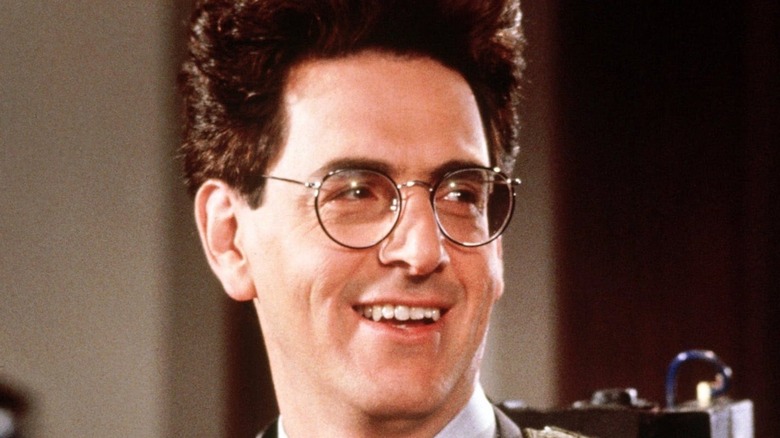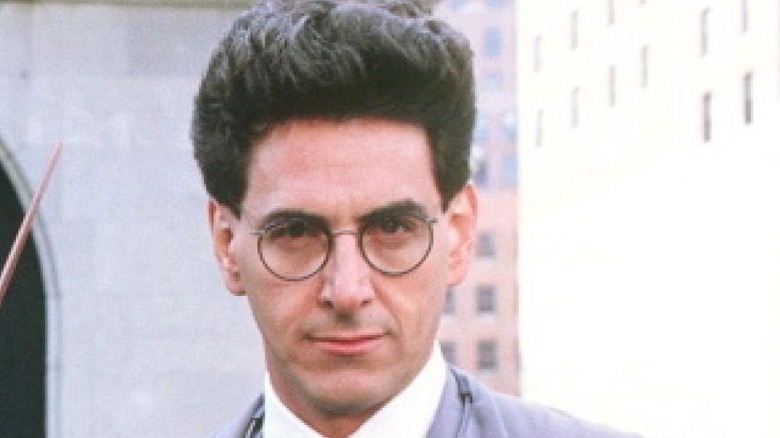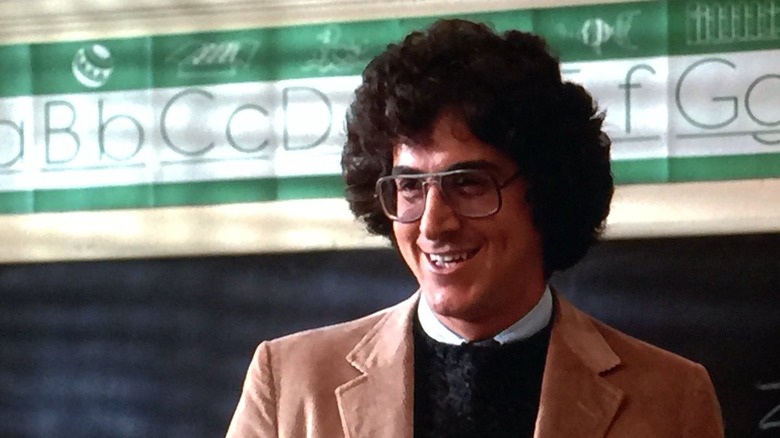How Harold Ramis Missed His Shot At A Spot On Saturday Night Live
The more time one spends in the beer-soaked, dimly lit, brick-wall-adorned basements of the comedy club circuit, the more one sees how stand-up comedians hone their craft. One of the comedian's most common tricks, especially to salvage a set that is quickly bombing, is to do something called "crowd work." The technique is just like it sounds, where the comedian improvises a series of roasts and riffs based on interviewing and observing audience members.
As one might expect, crowd work can turn nasty very easily and very quickly. Unless the comedian is keeping the mood jovial rather than antagonistic, the comedy can sour, and not just for the audience. It's for largely this reason why Harold Ramis decided not to follow his "The National Lampoon Show" peers to "Saturday Night Live," turning down an opportunity that might have rocketed him to comedy stardom faster, even though he eventually broke out.
'This doesn't feel good to me': Ramis didn't agree with The National Lampoon Show's tone
Harold Ramis decided to skip his chance to follow his peers to "SNL" due in large part to the culture it seemed to him to be fostering.
When Ramis appeared on NPR's "Fresh Air with Terry Gross" in 2005 to promote "The Ice Harvest," Gross recalled how, while attending a live performance of "National Lampoon's Lemmings" in the early '70s, she was picked by cast member Chevy Chase during a sketch and publicly roasted. She stormed backstage to reprimand Chase and the rest of the troupe, behavior she subsequently thought was "humorless" of herself.
Ramis agreed with her initial impulse. He described how he found himself souring on the show for the same reasons:
"When we started doing our show on the stage, it was very kind of abusive of the audience, and it was rude and it was crude and very hostile in a certain way. And that's not me. So after a couple months on that show, I thought, 'You know, this doesn't feel good to me. I don't like abusing the audience in this way. I don't know what we're saying to them, and I don't know why we're saying it.'"
Ramis left the show. He was in an awkward position when, shortly after his departure, "SNL" creator/producer Lorne Michaels saw the Lampoon stage act and handpicked John Belushi and Gilda Radner to be among the inaugural "Not Ready for Prime-Time Players" on "NBC's Saturday Night," which became "Saturday Night Live." Ramis explained: "I'm not saying [Michaels] would have picked me had I stuck around. But ... I just didn't like the show, and I didn't want to be associated with that energy in a certain way."
Ramis opts out of SNL's drug-fueled environment for SCTV
Harold Ramis didn't end up needing "SNL." By the mid-1970s, he already had a lengthy resume, writing and performing for various troupes and outlets such as Second City, the Chicago Daily News, and Playboy magazine. His affiliation with "The National Lampoon Show" saw him collaborate with the likes of John Belushi, Bill Murray, Joe Flaherty, Christopher Guest, and Gilda Radner, and in 1976 Ramis and Flaherty were recruited to work on a television version of the Second City called "SCTV."
Becoming the head writer for that show coincided with appearing as an actor on "SCTV," as well as beginning work on the script that would become "National Lampoon's Animal House" with National Lampoon magazine alums Douglas Kenney and Chris Miller. As Ramis recalled to GQ in 2009, Lorne Michaels asked him to join "SNL" in the midst of all this, after the show had started its run. He declined because "SNL," he said, "was completely fueled by cocaine; the show was being written literally overnight. I didn't want to stay up all night writing." Ramis also remained dissatisfied with its approach to sketch comedy. He believed it "had a veneer of New York sophistication — very snide and superior. I thought, it's just not me."
Thanks to "SCTV" and the hugely successful "Animal House," Ramis carved out his own niche in the comedy world, one that put him in-demand and led to further successful gigs in front of and behind the camera like "Stripes," "Ghostbusters," and "National Lampoon's Vacation." While a "Saturday Night Live" costarring and written by Harold Ramis would've undeniably been something to see, Ramis' career is proof that making it big in comedy can be done without "SNL," and it certainly doesn't require being nasty to your audience.


